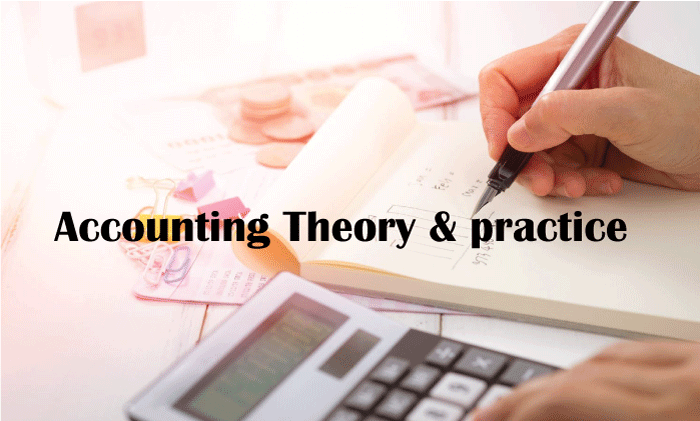Accounting TheoryUnderstanding Accounting TheoryThe principles, concepts, and procedures utilized in financial accounting are explained and analyzed using a systematic approach known as accounting theory. Its primary focus is on developing theoretical frameworks for accounting principles and procedures that govern the layout and presentation of financial accounts. An understanding of accounting and financial reporting is crucial for investors, analysts, regulators, and other stakeholders, and accounting theory provides their foundation. 
Historical Overview of Accounting TheoryThe roots of accounting theory can be found in the early days of commerce when traders and merchants needed to keep track of their financial transactions. Accounting theory has evolved over many centuries. Throughout history, various social, economic, and political forces have shaped the development of accounting theory.
The creation of double-entry bookkeeping in the 15th century was one of the oldest and most significant advancements in accounting theory. With this accounting system, businesses could organize and record their financial activities, making the creation of financial statements easier. The foundation of contemporary accounting continues to be double-entry bookkeeping, which is utilized by enterprises and organizations worldwide.
Accounting principles started to emerge more formally during the 19th century. The creation of accounting concepts, including matching, accruals, and conservative principles, was prompted by the advent of joint-stock firms and the necessity for consistent financial reporting. These guidelines were created to guarantee that financial statements were made consistently and accurately.
The creation of professional accounting groups like the American Institute of Certified Public Accountants (AICPA) and the Institute of Chartered Accountants in England and Wales (ICAEW) marked the beginning of the development of accounting standards in the early 20th century. These organizations started to create accounting standards that provide instructions on preparing and presenting financial statements. An essential step towards the uniformity of accounting practices was taken in the United States in 1973 with the founding of the Financial Accounting Standards Board (FASB).
Throughout history, numerous theoretical perspectives have affected accounting theory. The early 20th century saw the emergence of the normative approach, which focused on defining what should be done in accounting practice. Throughout the 1960s and 1970s, the favorable method, which tried to represent what has been done in accounting practice, became more popular. In the 1980s and 1990s, the critical approach, which tried to challenge the underlying presumptions and power dynamics that influence accounting methods, came into existence.
There has been a move towards internationalizing accounting standards in recent years. A single set of excellent international accounting standards was the motivation for the establishment of the International Accounting Standards Board (IASB) in 2001. Many nations have adopted International Financial Reporting Standards (IFRS), considering it the worldwide accounting standard. The convergence of accounting standards has been a strong emphasis of the IASB and the FASB. 
Different Approaches to Accounting TheoryThere are various ways to comprehend and assess the concepts, principles, and procedures employed in financial accounting, which is a broad and complicated topic of study and is known as accounting theory. The three basic categories of these approaches are normative, positive, and critical. 1. Normative ApproachPredicting what should be done in accounting practice is the focus of the normative approach to accounting theory. It is predicated on the notion that accounting should serve the public interest and offer pertinent, accurate, and comparable data. The normative method aims to create accounting principles and regulations based on moral and ethical issues. Additionally, it highlights the need for sound judgment and the necessity for accountants to act for the public good. 2. Positive ApproachThe goal of the positive approach to accounting theory is to describe how accounting is actually done in practice. It is predicated on the notion that accounting is a social discipline that is influenced by the goals and principles of different stakeholders, such as managers, investors, regulators, and accountants themselves. The positive approach aims to comprehend the variables that affect accounting practices and how accounting affects the behavior of various stakeholders. It is frequently linked to quantitative analysis and empirical research techniques. 3. Critical ApproachThe critical approach to accounting theory places a strong emphasis on challenging the underlying assumptions and power relationships that shape accounting practices. It is predicated on the notion that accounting is a social and political profession that mirrors and supports prevailing political and economic beliefs. The objective of the critical approach is to promote more democratic and unrestricted forms of accounting while exposing the biases and limitations of accounting methods. It is frequently linked to interpretive analysis and qualitative research techniques. Comparison of ApproachesAs discussed above, there are different approaches to accounting, and each has its own advantages and disadvantages. Although it might be argued that the normative approach is overly prescriptive and ignores the social and political context of accounting, it does offer a clear foundation for ethical and professional behavior in the field. The positive approach can be faulted for being overly descriptive and disregarding normative considerations, yet it offers insightful information into how stakeholders behave in accounting. Though it can be argued that the critical approach is overly radical and ignores the realities of accounting practice, it offers a significant critique of the dominant economic and political ideas. These different approaches to accounting theory reflect various viewpoints on the function and goal of accounting. Each strategy has its own advantages and disadvantages, and they can work best when combined. An appreciation of the normative, positive, and critical perspectives and the capacity to apply them fairly and nuancedly are necessary for a thorough knowledge of accounting theory. Objectives of Financial ReportingInformation that can be used to make economic decisions is the primary goal of financial reporting. Financial reporting gives stakeholders a thorough picture of an organization's financial performance and situation, empowering them to make wise decisions regarding lending, investing, and resource management. The objectives of financial reporting can be broadly classified into two categories: external and internal. External ObjectivesThe goal of external financial reporting is to provide relevant statistics or information to various external stakeholders, including creditors, regulators, investors, and the general public. The following are some of the goals of external financial reporting:
Internal ObjectivesIn order to help internal stakeholders, such as managers and staff, make decisions about resource management and accomplishing organizational goals, internal financial reporting strives to offer meaningful information to them. The following are some of the goals of internal financial reporting:
Particular ConsiderationsSince the sixteenth century, accounting has been a popular discipline. Since then, businesses and economies have undergone substantial upheaval. The field of accounting theory is constantly evolving and must adapt to new corporate practices and technology developments to avoid loopholes in the reporting system. For instance, organizations like the International Accounting Standards Board (IASB) contribute to the development and updating of real-world applications of accounting theory by making revisions to their International Financial Reporting Standards (IFRS). Businesses can get assistance from specialists like Certified Public Accountants (CPAs) in negotiating both recent and enduring accounting regulations. The Bottom LineIn conclusion, the guiding principles, ideas, and procedures of financial accounting are the subject of a dynamic, multidisciplinary discipline known as accounting theory. The various perspectives on accounting theory, such as normative, positive, and critical perspectives, offer insightful information on the function and aim of accounting. Each strategy has its own advantages and disadvantages, and they can work best when combined. An awareness of the various methods and the capacity to use them in a balanced and nuanced way are necessary for a thorough understanding of accounting theory. Accounting theory is essential in influencing accounting practice and encouraging openness, responsibility, and moral conduct in businesses. |
 For Videos Join Our Youtube Channel: Join Now
For Videos Join Our Youtube Channel: Join Now
Feedback
- Send your Feedback to [email protected]
Help Others, Please Share









